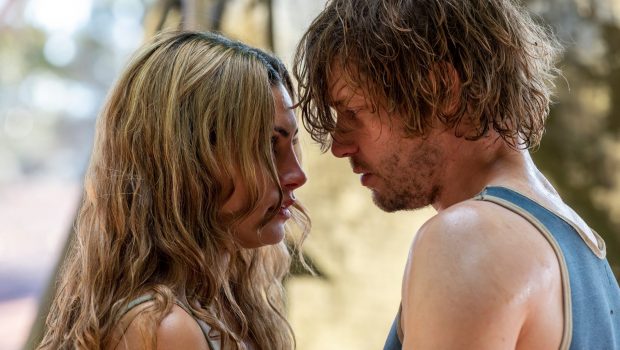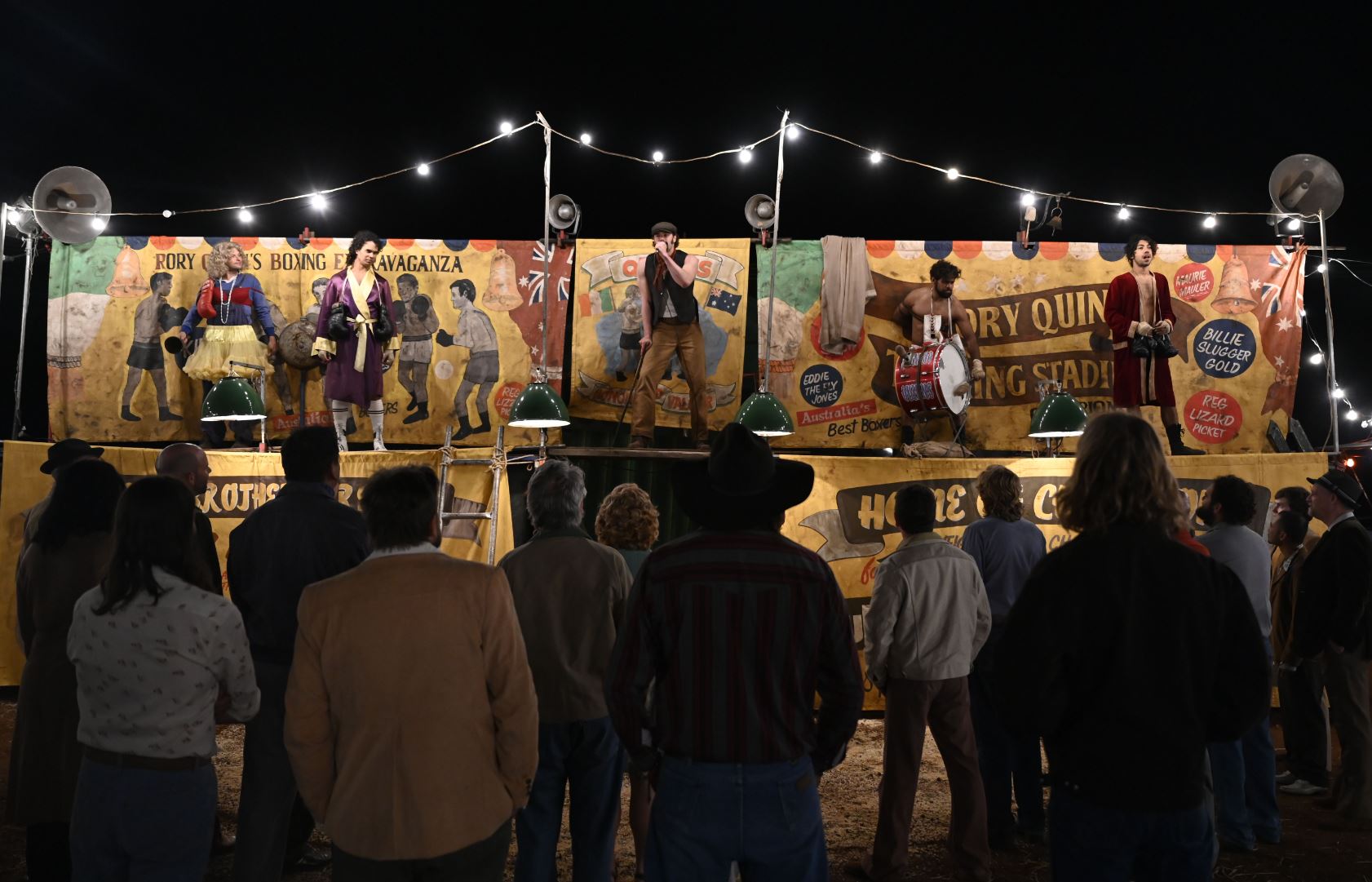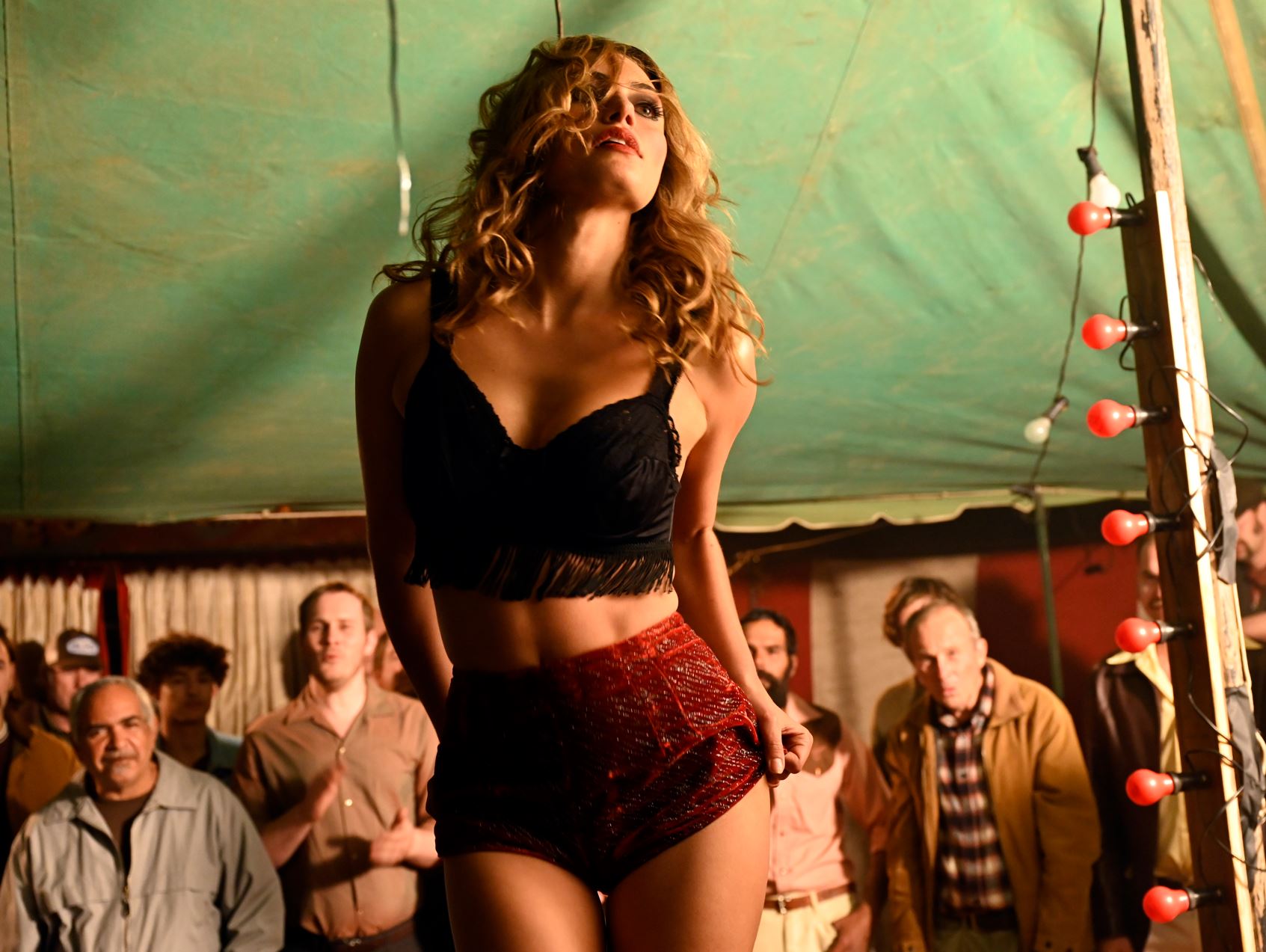Kid Snow – Film Review
Reviewed by Damien Straker on the 11th of September 2024
Madman presents a film by Paul Goldman
Screenplay by John Brumpton
Produced by Lizzette Atkins and Bruno Charlesworth
Starring Billy Howle, Phoebe Tonkin, Tom Bateman, Tristan Gorey, Jack LaTorre, Hunter Page-Lochard
Cinematography Russell Boyd
Edited by Sylvie Landra
Music by Warren Ellis
Rating: MA15+
Running Time: 127 minutes
Release Date: the 12th of September 2024
President Snow, Jon Snow, Aldous Snow, and Larry Snow. Can an underdog fighter join the Mount Rushmore of snowmen? Sadly, the new Australian boxing drama Kid Snow needed a stronger hero in the ring. The titular protagonist (played by English actor Billy Howle) is a dishevelled Irish fighter who regularly engages in fixed matches. The movie opens with Snow throwing a fight and being consoled by his brother Rory (Tom Bateman). Afterwards, Snow is responsible for a tragic drunken car accident that leaves Rory crippled. The story then forwards in time to Western Australia in the 1970s. At a carnival, Snow is introduced each night as a fighter by Rory who now walks with a cane. They are offered the chance for a professional fight against a hulking fighter named Hammer (Tristan Gorey). It’s a tough ask but as the brothers say to each other, ‘there is more than one way to win a fight’. Soon Snow’s attention deters from training towards a woman named Sunny (Babylon’s Phoebe Tonkin) and her son, Darcy (Jack LaTorre). They are caught stealing from the carnival, but Rory hires her as an exotic dancer. Snow’s bond with Sunny and the boy leaves Rory feeling resentful. He grows increasing abusive towards Sunny, particularly as her reputation around the carnival soars.
The film asks us what type of fighter ignites the flames of a gripping boxing drama. Some boxing films have deeply humane characters that are battling their way out of poverty. Million Dollar Baby (2004) and Cinderella Man (2005) typified how sympathetic this emotional, psychological, and physical battle can be. Contrastingly, Robert De Niro’s depiction of fighter Jake LaMotta in Martin Scorsese’s Raging Bull (1980) was so repellent it compelled and disturbed audiences equally. Sadly, Kid Snow is not a character or boxing hero to be overly excited about meeting. His mattered hair hanging long over his face and his penchant for hard drinking paints him as a particularly untidy fellow. There is nothing wrong with that depiction per se, but it makes his late transition from a reckless layabout into a deadly fighter hurried and unconvincing. Similarly, Rory’s abusiveness is discarded as the brothers briskly seek reconciliation. It is a pity because his violent temperament is a scarcely engrossing midpoint. The drama might be attributable to Sunny’s empathetic bid for survival as a mother than a talented dancer. Her imprisonment by Rory (he pockets some of her earnings) underlines his bitterness towards other people’s success. The dramatic revival, ushered by Sunny’s vulnerability, makes us wish her escape to a safe beachside was not a fleeting subplot but a sharp refocus on a character more sympathetic than the brothers.
If nothing else, Paul Goldman (Suburban Mayhem, 2006) is a director who knows how to draw effective performances from his cast. Both Billy Howle and Tom Bateman overcome clichés devices about family grievances and match throwing to deliver suitably grizzled performances. It is understandable that the brothers hold resentment towards each other because of the accident and that they want to prove that outside of those fixed matches they have genuine talent to compete. As mentioned, the standout role is Phoebe Tonkin’s tough, resilient turn as Sunny. Its enjoyable watching her confidence grow, such as when she tells Rory she doesn’t need any intro anymore. Jack LaTorre has some funny lines too, which briefly adds levity. Such is the intrigue of the character that Sunny should be the first port of call for a Kid Snow Cinematic Universe. Think of the possibilities if the title Snowtown (2011) was not already taken.
It is a pity the actors’ commitment is not supported by sharper artistic instincts. The film is set in Kalgoorlie, Western Australia, and has a vintage aesthetic that stages the carnival scenes mostly at night. The shadows and the smoky haze from the ringside also shroud proceedings. It is a change from the typically dusty visual tropes of outback dramas, but it muddies the timeframe. The flash of the cameras during an early fight makes the story appear ancient only for a belated television caption to remind us we are in the early 1970s. The fight choreography is not brutal enough to distract from the drab visuals either. Even a fixed bout could have been filmed with more heft. Ultimately, all the actors take it upon themselves to bring personal conflict to the story.
Kid Snow is a well-acted Australian drama that lacks visual and narrative distinction. The performances of the three adults are a highlight as these characters struggle with romantic feelings and moments of deep-rooted jealousy. However, a more engaging visual style would have made the story’s period clearer and heightened the intensity of the lacklustre fight scenes. Meanwhile, a few more surprises in the storyline and a deeper focus on Sunny, the most sympathetic character, would have strengthened our investment. As mentioned, only the middle portion truly grabs our attention. The stakes, the sense of imprisonment and the need to protect an innocent child, are higher than anything else. Otherwise, it is a passable sports movie about damaged brothers who lay their best card with a neat twist at the very end. Like its leads though, the film won’t stand toe to toe with its heavyweight competitors (especially Larry Snow).
Summary: Phoebe Tonkin’s tough, resilient turn as Sunny is a highlight. Like its leads though, Kid Snow won’t stand toe to toe with its heavyweight competitors.









